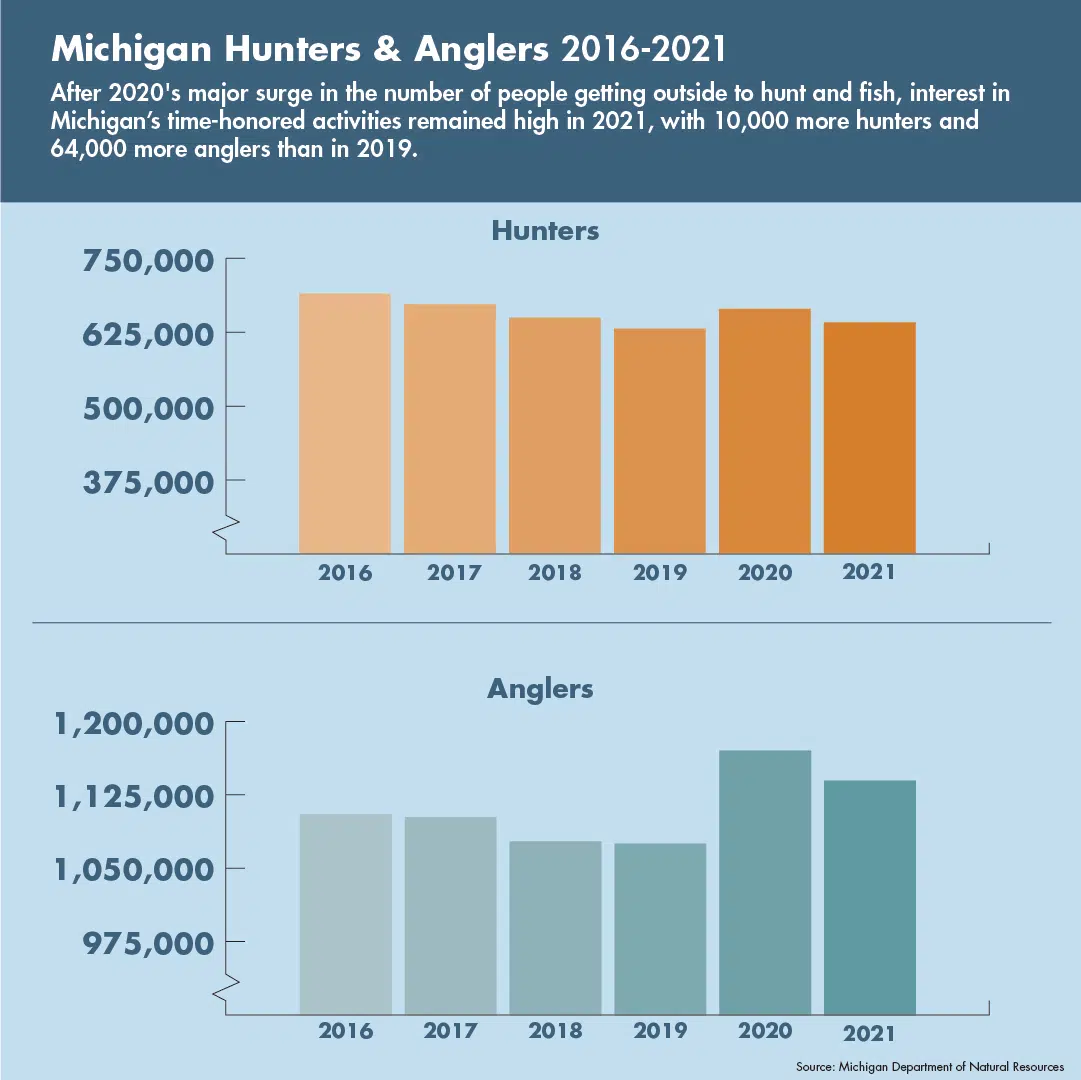LANSING, MI (WKZO AM/FM) – Following last year’s surge in Michigan hunting and fishing license sales, officials with the Michigan Wildlife Council say 2021 trends show interest in the time-honored outdoor activities remains high. They also say that means good news for jobs, the economy, and managing the state’s wildlife and other natural resources.
“We are excited to see that hunting and fishing license sales kept pace with, and in some cases even surpassed, 2020 numbers,” said Nick Buggia, chair of the Michigan Wildlife Council. “The more people who enjoy hunting and fishing in Michigan, the better it is for our entire state.”
According to the Michigan Department of Natural Resources, 641,588 people purchased hunting licenses and 1.13 million purchased fishing licenses in 2021 through November 30.
Hunting license purchases were up 1.6% from 631,138 bought in 2019 and fishing license purchases were up 5.9% from 1.07 million bought in 2019.
Hunting and fishing license purchases though were down 3.4% and 2.6%, respectively, from the record-setting 2020 spike.
The Michigan Wildlife Council says last year’s sharp increase in hunting and fishing license sales was part of a national trend spurred by the pandemic that brought an influx of people, especially women and youth, outdoors looking for socially distanced recreation.
Hunters and anglers aged 65 and older purchased 107,107 hunting licenses and 204,726 fishing licenses in 2021:
Although first-time hunting and fishing license purchases were down from last year, they outpaced 2019 numbers. The number of women purchasing hunting and fishing licenses also grew in 2021 compared to 2019.
Licenses purchased by hunters and anglers generated an estimated $65.5 million for the Michigan Game and Fish Protection Fund in 2020. The fund is the DNR’s largest revenue source and is critical to its conservation work. The sale of hunting and fishing equipment raised an additional $29.4 million to support wildlife and natural resource management.
Additionally, hunting and fishing have a combined $11.2 billion economic impact on Michigan and provide an estimated 171,000 jobs annually, according to a 2019 study released by the Michigan United Conservation Clubs in partnership with Michigan State University.







